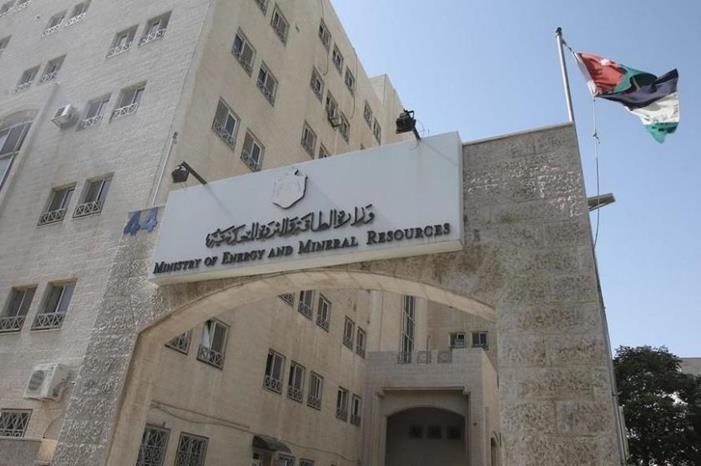- Local News
- Sun-2024-08-18 | 06:18 pm

Nayrouz News Agency :
The Ministry of Energy and Mineral Resources has successfully implemented a series of innovative projects aimed at significantly reducing the country's carbon footprint.
These efforts, spanning from 2015 to the end of 2023, align with Jordan's environmental and climate change commitments under the Paris Agreement.
The ministry's initiatives are designed to ensure the continuation of economic and social benefits for Jordanian citizens while advancing the country's green economy.
The ministry emphasized the urgency of taking practical measures to curb carbon emissions, with a target of a 31% reduction by 2030. This is a critical part of Jordan’s broader strategy to meet its climate obligations and contribute to global efforts to combat climate change, paving the way for a low-carbon future.
Jordan has played a pivotal role in its Nationally Determined Contributions (NDCs), which has positively impacted the reduction of greenhouse gas emissions. This effort is closely tied to the achievement of Sustainable Development Goal 13, which focuses on climate action.
The Ministry of Energy stated that renewable energy is projected to contribute 31% to Jordan's electricity mix by 2030, accompanied by a 10% reduction in carbon emissions from the energy sector, as outlined in its strategic plan for the energy sector from 2020 to 2030.
Jordan has made notable progress in expanding its renewable energy portfolio, increasing its share in the total energy mix from 0.7% in 2014 to approximately 14%. The share of renewable energy in the electricity mix has surged from 0% to 26% by 2023. Additionally, various energy efficiency programs have reduced greenhouse gas emissions by around 3.34 million tons up to 2023.
Through the programs and projects executed by the Jordan Renewable Energy and Energy Efficiency Fund (JREEEF), the ministry achieved an annual reduction of about 97,225 tons of carbon dioxide, representing 1.1% of Jordan’s national target for 2030 across all sectors.
The residential sector alone saw a decrease of 68,785 tons of carbon dioxide annually, thanks to the fund’s support for renewable energy and energy efficiency applications aimed at reducing final energy consumption.
Meanwhile, the small and medium enterprises sector recorded a reduction of 3,554 tons of carbon dioxide annually through the energy efficiency program for factories, which alone accounted for 2,836 tons. The energy efficiency program for hotels contributed a further 718-ton annual reduction.
In the government and public buildings sector, implemented programs led to a 21,576-ton reduction in annual carbon emissions. The photovoltaic cell installation program for places of worship achieved the highest reduction in this sector, with a decrease of 10,036 tons annually
The Jordan Sustainable Economic Development and Energy (SEED) project followed with 7,900 tons, while the photovoltaic installation project for schools resulted in a 2,101-ton reduction annually.
Other notable reductions include the photovoltaic cell installation project for public benefit institutions, which reduced emissions by 815 tons annually, and the project for municipalities, which achieved a 468-ton reduction. The project for health centers recorded a 256-ton reduction in carbon emissions annually.
In the agricultural sector, the program focused on photovoltaic cell installation for farms achieved a reduction of 3,309 tons of carbon dioxide annually.
The ministry's plan also encompasses various energy efficiency initiatives, including updating and monitoring national legislation to enhance their effectiveness, improving energy efficiency in the water sector by 15% by 2025, and advancing transportation systems through the development of rapid bus networks and railway systems.
Additionally, the plan aims to improve energy efficiency in the residential, industrial, government, commercial, and service sectors.
A significant aspect of the ministry’s strategy is the promotion of electric vehicles. The ministry is currently developing an electric transportation strategy that includes recommendations for the necessary infrastructure to support electric vehicles, a study of their impact on the electrical grid, and guidance on electricity tariffs for vehicle charging. This strategy also involves finalizing the legislative framework to facilitate the transition to electric vehicles.
In its efforts to reduce the carbon footprint, the ministry has taken several key steps, including updating the comprehensive energy sector strategy to reflect significant developments such as green hydrogen production. Additionally, a joint infrastructure study is being conducted in collaboration with the European Bank for Reconstruction and Development (EBRD).
The ministry has also formed the National Hydrogen Committee and is reviewing the regulatory and legal framework for hydrogen with the World Bank. To further these efforts, one framework agreement and 12 memorandums of understanding have been signed with interested local and international companies, and a reference document for green hydrogen in Jordan has been prepared in cooperation with USAID.
The ministry is also working closely with the Ministry of Environment to develop the national green economy plan for the energy sector. This plan includes measures to improve energy demand management by developing smart electricity grids, creating a roadmap for renewable energy projects in the industrial sector, and revitalizing the green buildings sector and construction services market.
The plan also involves developing and implementing a national green buildings strategy and applying modern energy efficiency standards in public buildings
Further actions include partnerships with the public and private sectors to establish electric vehicle charging and maintenance stations within the Greater Amman Municipality, developing a specific action plan for the national energy storage strategy, identifying financing mechanisms, increasing government investments in research and development, and providing financial incentives to encourage the adoption of high-efficiency electrical appliances through campaigns aimed at changing consumer behavior and improving the implementation environment.










